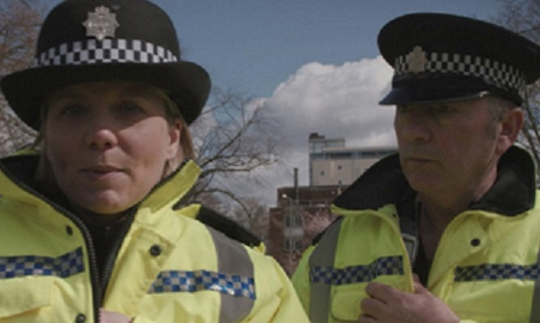Government hears of police “severity of mental health” illnesses
29 January 2018

Tackling demand and capacity in policing is one of the most immediate and direct methods to making a difference in preventing poor mental health and wellbeing.
That was the message from the Police Federation to Government at a “round table” discussion on wellbeing in the police service.
According to the Home Office, the meeting – chaired by the Police Minister Nick Hurd – “focused on how the Government can assist police chiefs in their statutory duty to manage the welfare of their officers”.
Che Donald, Vice-Chairman of the Police Federation, who attended the meeting on behalf of police officers, said the Minister recognised the “severity of the problems of officer wellbeing within the police service.”
Research shows that 9,267 UK police officers have taken time off with mental health illnesses in the past year. That’s a 47% rise in the past five years.
And a Police Federation of England and Wales survey showed that 65% of respondents said they had still gone to work despite feeling they shouldn’t have due to their mental wellbeing. The survey also showed that 51% of respondents disagreed or strongly disagreed with the statement ‘the police service encourages its staff to openly talk about mental health and wellbeing’.
Che added: “This problem is growing and therefore needs to be acted on sooner rather than later. I was particularly vocal in drawing attention to the fact that wellbeing and welfare is affected by demand and capacity issues, as highlighted by our survey.
“Therefore if sensible and mature conversations are not taken around reducing demand or improving capacity to deal with demand, wellbeing will not improve.
“Significant investments can be made in producing a bespoke wellbeing service. However, if the severe imbalance between demand and capacity is not addressed, all you will have is a steady, consistently growing stream of officers requiring access to this welfare service.
“In short, tackling demand and capacity is one of the most immediate and direct methods to making a difference in preventing poor mental health and wellbeing.”
According to Che, “a further meeting is to be set, where proposals, time frames and costs will no doubt form part of the conversations”.
He concluded: “The first battle in addressing any problem is recognising you have one.”
Chief Constable Andy Rhodes, the National Police Chiefs’ Council Lead on Wellbeing, was also at the meeting. He said: “Our police officers and staff work in a physically and emotionally demanding environment, putting their bodies and their minds on the line 24/7 to keep us safe.
“This roundtable sends out a clear message that we are relentless in our commitment to provide the world-class welfare support police need to deliver a high-quality service for the public.
“The event brought together experts and national leads to review progress and agree priorities for the future, including significant investment from the Police Transformation Fund. This investment will enable us to accelerate our efforts and significantly step up our activity over the coming years.”
Mr Hurd said: “Policing can be a very demanding job. Officers have demonstrated extraordinary courage and fortitude in the face of major challenges over the past year, including terrorist attacks and the Grenfell Tower fire. I am grateful to them for their tireless work and dedication to duty.
“It is imperative that policing provides excellent support to its officers and staff – which is why I’m keen to listen to those with the most experience on how to do this best.
“The Government takes the issue of police welfare very seriously, and this event provides an opportunity to review progress so far and put plans in place for the future.”



















